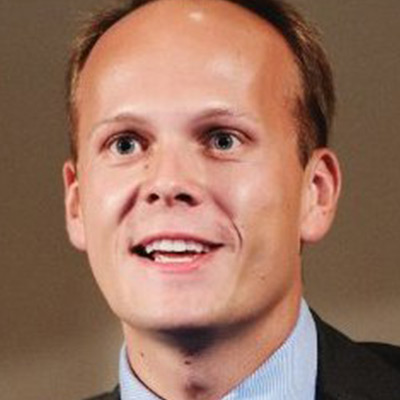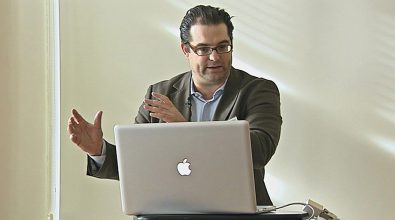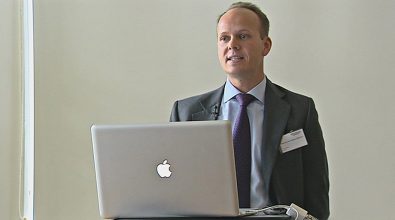The Euro crisis has now penetrated the core of the Euro area and, since the beginning of 2012, has continued to gain momentum. The example of Greece shows that investors invested in the Euro can expect losses of at least 70% in a debt restructuring or a currency reform. In addition, material values are associated with risks. Experts in the Austrian Economic Theory know that, especially in the final phase of any state compulsory system, there are violent economic cycles and particularly severe fluctuations in the capital markets. Successful liquidity management therefore requires active asset management with a functioning hedge strategy. With this scenario as a backdrop, Steffen Krug has developed Austrian Asset Management – a strategy for investment in the Euro crisis.
Since 2001 Steffen Krug has worked as a financial adviser and as an independent financial broker, and since 2009, he has been Founder and Director of the Institute for Austrian Asset Management.
Krug completed his studies of economics at the University of Heidelberg, ESC Reims in France and at the European University Viadrina in Frankfurt / Oder. He completed his thesis under, and was research assistant to Professor Jan Winiecki, representative of the Austrian School of Economics and a member of the Mont Pelerin Society. In 1999-2000 he was a trainee at the der Vereins- und Westbank in Hamburg, and in 2000-2001 was paper specialist there.

The reaction to the current crisis is already feeding the next crisis. A crisis caused by expansive monetary policy being solved by the same means seems naive. The driving forces of prosperity are savings and investment, not consumption and debt. The rising price of gold is, in our opinion, only a logical consequence of quantitative easing, which in our opinion is only a euphemism for launching the (digital) printing press. Gold remains an antagonist to uncovered paper currency–an excellent hedge against worst-case scenarios. The perfect environment for gold means low real interest rates and high counterparty risk. Both are currently clearly present and we expect this to continue. At current real interest rates, gold is a clear alternative to short-term government bonds, current accounts and term deposits.
Ronald-Peter Stoferle was born in Vienna on October 27, 1980. He completed studies of business administration and finance at the University of Vienna, as well as in the United States. He began at Erste Group in Vienna, and wrote international gold reports which were quoted on Bloomberg TV, CNBC as well as in the Wall Street Journal and Economist. For 3 years he has been responsible for the analysis of oil and gas at the Erste Group; his last oil analysis with the title "Force Majeure" was published in March. His last gold report "in GOLD we TRUST" was published on July 4. In 2011, he was given an award by Bloomberg for his gold analysis. In addition to his research work, he is responsible for the management of 2 gold-equity Baskets, as well as a silver-based Basket. Stöferle is a chartered market technician (CMT) and certified financial technician (CFTe).




The Euro crisis has now penetrated the core of the Euro area and, since the beginning of 2012, has continued to gain momentum. The example of Greece shows that investors invested in the Euro can expect losses of at least 70% in a debt restructuring or a currency reform. In addition, material values are associated with risks. Experts in the Austrian Economic Theory know that, especially in the final phase of any state compulsory system, there are violent economic cycles and particularly severe fluctuations in the capital markets. Successful liquidity management therefore requires active asset management with a functioning hedge strategy. With this scenario as a backdrop, Steffen Krug has developed Austrian Asset Management - a strategy for investment in the Euro crisis.

The reaction to the current crisis is already feeding the next crisis. A crisis caused by expansive monetary policy being solved by the same means seems naive. The driving forces of prosperity are savings and investment, not consumption and debt. The rising price of gold is, in our opinion, only a logical consequence of quantitative easing, which in our opinion is only a euphemism for launching the (digital) printing press. Gold remains an antagonist to uncovered paper currency--an excellent hedge against worst-case scenarios. The perfect environment for gold means low real interest rates and high counterparty risk. Both are currently clearly present and we expect this to continue. At current real interest rates, gold is a clear alternative to short-term government bonds, current accounts and term deposits.